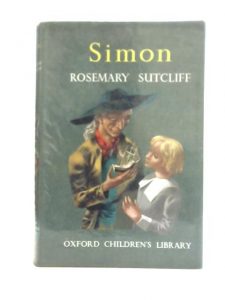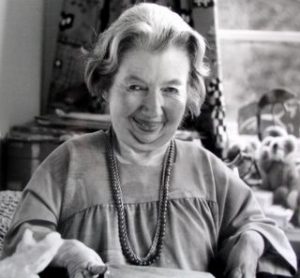I grew up knowing that was a 17th century Civil War in England in which Parliament fought the King and eventually won. Of course I did. But that was about all I knew and I had never really thought about what that would have meant for ordinary people until – shame on me – I was over 30 and read a young adult novel by Rosemary Sutcliff, set in the Civil War. It probably came from the library at the Kent school I was teaching in at the time. It moved me and I’ve often thought about it since but I forgot the title and it never seemed to be listed with Sutcliff’s Roman and Arthurian novels. Then, quite by chance, the other day when I was researching something else, there is was: Simon (1953). So I bought it and reread it.

Simon comes from a middle England farming family whose sympathies are with Parliament. Amias is the friend alongside whom, and with whose father, Simon has his lessons. His family are fervent supporters of the King. The two boys are inseparable until, of course, a few years later war breaks out and they find themselves fighting on different sides. This must, actually, have been quite a common situation as families, towns and communities went into action.
Of course their paths cross again several times in this story which is all told from the point of view of Simon who becomes part of the New Model Army. His ultimate boss, Thomas Fairfax, is presented as a very fair, competent, likeable man. Each time Simon and Amias intersect there are issues of split loyalties, decency and humanity. Some difficult decisions have to be made and Sutcliff doesn’t duck away from the reality of war and the deaths and injuries it inevitably causes.
I like her minor characters too. Barnaby is a fellow officer whom Simon meets before he enlists and the two have a delightful friendship – supporting each other amidst good humoured teasing. Then there’s the fierce evangelist who becomes Simon’s right hand man but he’s a victim too, in some ways. It’s very nuanced.
Sutcliff is, moreover, very good at military strategy. Not only does she make the reader feel that he or she is right there at the heart of the battle but every move, attack and retreat has been scrupulously researched so that it’s really accurate.

I heard Sutcliff (1920-1992) speak in 1968 when she spoke to students at my teacher training college. She’d already won the Carnegie Medal in 1960 for The Lantern Bearers – another good read which highlights something else I’d never thought about: just how difficult it must have been for those left behind when the Romans finally withdrew from Britain in AD 409/10. Later, in 1975 she was honoured with an OBE. My overriding memory of seeing her in the flesh was the severity of her disability. She had Stills Disease, a form of rheumatoid arthritis and had used a wheelchair since infancy.

It didn’t stop her producing some of the best historical fiction ever written for children and young adults, though. In fact some critics point out that many of her characters have some sort of “otherness” – maybe they’re alone or outcast. Simon feels pretty cut off once he loses Amias to the enemy side, for example. Perhaps, the argument goes, she identified with such people because of her disability.
For the record, I later studied the 17th century in some depth with the Open University and learned just how complex these divisions, associations, debates and tensions were. But it was Sutcliff who first forced me to think about it.
Next week on Susan’s Bookshelves: The House of Elrig by Gavin Maxwell